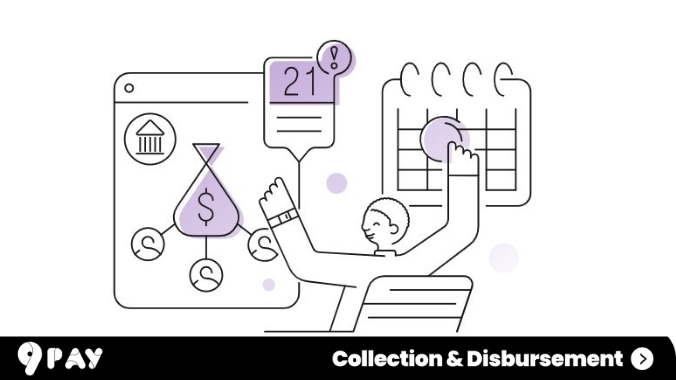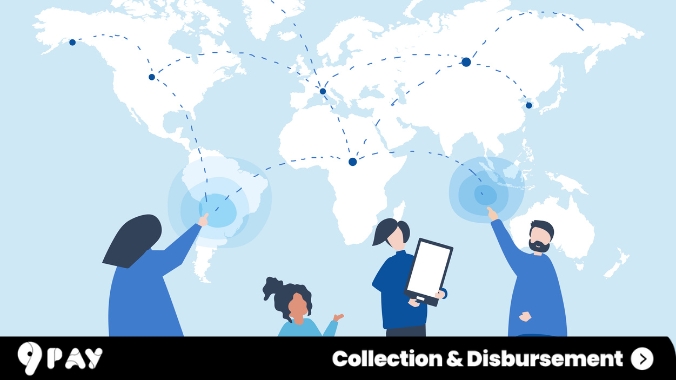What is global payroll? Challenges of global payroll
Global payroll, the management of payroll for employees across multiple countries, presents unique challenges due to the complexities of varying regulations and tax laws.

1. What is global payroll?

Global payroll is the process of managing employee compensation, deductions, and tax compliance for a workforce spread across multiple countries. It encompasses a range of activities, including:
- Payroll Calculations: Determining employee pay based on factors such as salary, overtime, commissions, and bonuses.
- Deductions: Processing deductions for taxes, social security contributions, and other mandatory or voluntary withholdings.
- Tax Compliance: Ensuring adherence to the complex tax regulations of each country where employees reside.
- Reporting and Remittance: Preparing and filing payroll-related reports and remitting taxes and other statutory contributions to the relevant authorities.
2. Differentiating global payroll from domestic payroll

Global payroll introduces a layer of complexity to the traditional payroll process. While domestic payroll focuses on complying with local tax laws and labor regulations, global payroll requires navigating a maze of varying regulations, currency fluctuations, cultural differences, and language barriers.
3. Types of global payroll providers
Companies venturing into global markets often face the decision of whether to manage global payroll in-house or engage a global payroll provider. Global payroll providers offer specialized services to handle the complexities of international payroll, including:
- Professional Employer Organizations (PEOs): PEOs assume legal responsibility for payroll and other HR functions, acting as the employer of record (EOR) for employees in multiple countries.
- Global Payroll Service Providers: These providers offer outsourced payroll services without assuming the legal responsibilities of an EOR. They typically specialize in specific regions or industries.
- Employer of Record (EOR) Services: EOR services provide legal employment for employees without the administrative burden of payroll, tax, and benefits compliance.

The Role of Employer of Record (EOR) and Professional Employer Organization (PEO)
EORs and PEOs play distinct roles in global payroll management. EORs provide legal employment for employees, assuming responsibility for payroll taxes, benefits, and regulatory compliance. PEOs, while also providing EOR services, offer a broader range of HR functions, including recruitment, training, and performance management.
4. How does global payroll work?
Global payroll management involves a series of interconnected processes, each requiring careful attention to ensure accuracy, compliance, and timeliness.

Key Processes in Global Payroll Management
- Data Collection and Verification: Gathering accurate employee data, including tax information, banking details, and beneficiary information, is crucial for payroll processing.
- Payroll Calculations: Calculating employee earnings, including base salary, overtime, bonuses, and deductions, requires understanding of local tax laws and labor regulations.
- Tax Compliance: Withholding and remitting taxes accurately across multiple jurisdictions is essential to avoid penalties and non-compliance issues.
- Payments and Reporting: Disburse salaries and benefits to employees in accordance with their local preferences and regulations, while generating comprehensive payroll reports for tax filings and auditing purposes.
- Data Accuracy and Security: Maintaining data integrity and safeguarding sensitive employee information are paramount in global payroll management.
5. The challenges of global payroll
Navigating global payroll presents a multitude of challenges, requiring expertise and adaptability.
Complexities of Varying Labor Laws, Tax Regulations, and Currency Fluctuations
Each country has its own unique set of labor laws, tax regulations, and currency exchange rates, making it challenging to manage payroll consistently across borders.

Cultural and Regional Differences in Employee Compensation
Cultural norms, regional variations in living costs, and differences in employee compensation expectations complicate global payroll practices.
Data Compliance, GDPR, and Security Standards
Adhering to data privacy regulations, such as GDPR (General Data Protection Regulation), and ensuring data security across multiple jurisdictions pose significant challenges.
6. Benefits of outsourcing global payroll
Outsourcing global payroll offers several advantages to businesses expanding internationally.
Specialized Expertise and Global Payroll Infrastructure
Global payroll providers offer specialized expertise and access to global payroll infrastructure, ensuring compliance and efficiency.

Enhanced Compliance, Optimized Costs, and Streamlined Operations
Outsourcing can help reduce the risk of non-compliance, optimize payroll costs, and streamline operational processes.
Improved Employee Satisfaction and Focus on Core Business Activities
By outsourcing global payroll, businesses can alleviate HR teams from administrative burdens and allow them to focus on core business activities.
7. Choosing a global payroll provider
Selecting the right global payroll provider is crucial for success in international expansion.

Assessing Company Needs and Requirements
Carefully evaluate your company's specific needs and requirements, including the number of employees, countries of operation, and payroll complexity.
Evaluating Global Payroll Providers
Research and compare different global payroll providers based on their experience, capabilities, service offerings, and customer support.
Factors to Consider
Evaluate factors such as cost, technology, customer support, and the provider's ability to handle the specific complexities of your global payroll needs.
8. Effective global payroll management strategy
Implement robust processes and procedures for data collection, verification, and validation
Accurate and reliable employee data is the foundation of effective global payroll management. Businesses should establish robust processes for collecting, verifying, and validating employee data, including:
- Data Collection: Develop standardized data collection forms and procedures to ensure consistency and completeness of employee information.
- Data Verification: Implement data verification mechanisms, such as cross-referencing with other sources and conducting employee audits, to ensure data accuracy.
- Data Validation: Regularly review and validate employee data to identify and correct any inconsistencies or errors.
By implementing robust data management practices, businesses can minimize the risk of errors in payroll calculations, tax filings, and regulatory compliance.

Utilize technology to automate tasks, enhance efficiency, and minimize errors
Technology plays a crucial role in streamlining global payroll processes and reducing the risk of human error. Businesses should leverage technology to automate repetitive tasks, improve efficiency, and enhance overall payroll management.
Global Payroll Software: Implement a comprehensive global payroll software solution that can handle the complexities of multi-country payroll processing, including calculations, deductions, and tax compliance.
Automated Data Collection and Verification: Utilize automated tools to collect and verify employee data, reducing manual efforts and improving data accuracy.
Automated Payroll Calculations and Reporting: Automate payroll calculations, tax withholdings, and generation of payroll reports to streamline processing and minimize errors.
By embracing technology, businesses can significantly enhance the efficiency and accuracy of their global payroll operations.
Establish clear communication channels with employees and stakeholders
Effective communication is essential for ensuring transparency, addressing employee concerns, and maintaining stakeholder confidence in global payroll management. Businesses should establish clear communication channels with employees and stakeholders, including:
Employee Communication: Provide clear and timely communication to employees regarding payroll procedures, pay schedules, deductions, and changes in tax regulations.
Stakeholder Communication: Regularly communicate with stakeholders, such as finance teams, legal counsel, and management, about payroll performance, compliance issues, and potential risks.
By fostering open and transparent communication, businesses can build trust, address concerns promptly, and ensure that all parties are kept informed about critical payroll matters.
Global payroll is an integral aspect of managing a multinational workforce, and navigating its complexities requires a comprehensive approach. By understanding the challenges, choosing the right provider, and implementing effective management strategies, businesses can optimize their global payroll processes, ensure compliance, and achieve their business goals.








